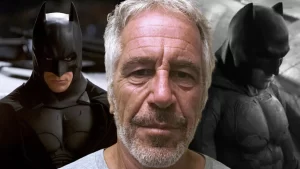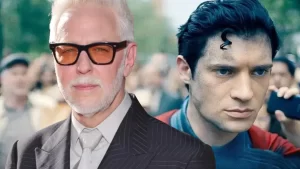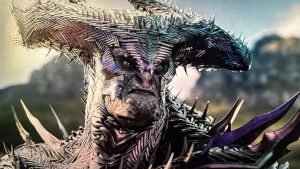300 Light
A Film Review of Immortals
By: Lawrence Napoli
 Before launching right into this review, I must make note of an important observation to the reader. Please contact me at Cosmic Book News if any of you found a similar situation occur when searching out show times for Immortals. As I searched for an appropriate time to see this film in the week that followed opening weekend, I was shocked to find that it only had two show times featuring standard projection at my local Regal Cinemas. As I scrolled down on Fandango’s web page, I noticed there were at least ten show times that featured digital 3D projection at an additional $4 dollars per admission. I have made no secret of my disdain for a perceived conspiracy between studios and theatres to price gouge the viewing public at every possible opportunity, but this example all but cemented that theory as cold hard fact for yours truly. The standard projection shows both began before 3pm and did not fit into my weekly schedule, so I begrudgingly paid the additional fee for the supposed “enhancement” that comes from viewing this film in 3D. I had all but forgotten that I was watching this film in 3D until about 5 minutes prior to the end credits where the film tossed in some token “things flying at the screen” effects. Immortals is a film that has no business being shown in 3D because it is a shameless ploy to extract more dollars from your wallet while receiving absolutely NOTHING in return for the additional premium.
Before launching right into this review, I must make note of an important observation to the reader. Please contact me at Cosmic Book News if any of you found a similar situation occur when searching out show times for Immortals. As I searched for an appropriate time to see this film in the week that followed opening weekend, I was shocked to find that it only had two show times featuring standard projection at my local Regal Cinemas. As I scrolled down on Fandango’s web page, I noticed there were at least ten show times that featured digital 3D projection at an additional $4 dollars per admission. I have made no secret of my disdain for a perceived conspiracy between studios and theatres to price gouge the viewing public at every possible opportunity, but this example all but cemented that theory as cold hard fact for yours truly. The standard projection shows both began before 3pm and did not fit into my weekly schedule, so I begrudgingly paid the additional fee for the supposed “enhancement” that comes from viewing this film in 3D. I had all but forgotten that I was watching this film in 3D until about 5 minutes prior to the end credits where the film tossed in some token “things flying at the screen” effects. Immortals is a film that has no business being shown in 3D because it is a shameless ploy to extract more dollars from your wallet while receiving absolutely NOTHING in return for the additional premium.
Getting back to the task at hand; Immortals was not a film I was particularly anticipating because the latest samplings of Greek mythology offered up by the Hollywood machine — Clash of the Titans (2010) and Percy Jackson & The Olympians: The Lightning Thief — didn’t bring to bear any manner of magic to adventures that feature such heavenly grandeur. The prior was Die Hard with giant monsters and the latter was a Scooby Doo episode of The Goonies meets the gods. My gold standard for this subset of the action/adventure genre remains to be Jason and the Argonauts (1963). That film did what Greek mythology films are supposed to do: 1) make all the gods uniquely identifiable 2) make the humans easy to root for and 3) use the comparison between mortal and immortal conceptions of sentience to teach the audience something about what it means to be human. It appears that Hollywood has lost its way in being able to produce a good film that features the ever popular Greek gods and goddesses, and although this may not be proof of this statement, typing in “the best Greek mythology titles” on imdb.com reveals an interesting truth in regards to how viewers rate the quality of these stories in history. This list features the “top 100,” and notables include Percy Jackson at 69, the original Clash of the Titans (1981) at 42, Brad Pitt’s Troy at 29 and Jason and the Argonauts at 21. Do you know which stories occupy the top 3 spots? All three God of War video games happen to do so, and they feature Kratos, a completely fabricated main character within the realm of Greek mythology that generates no sympathy, has no remorse and violates just about every rule for “good character development” in the book. But those games told great stories in such a refreshing manner of depravity that would revile the understood PC culture of Hollywood-corporate rules of production. In short, God of War is a snuff film when compared to something like 300.
Alas, I’ve taken the long way around to make a point about Hollywood’s latest godly installment with Immortals, and that is: This film could not have taken a less remarkable approach to revisiting the original conflict between the new gods and the titans of old. The first culprit, as always, is a lack of focus in the screenplay. I could have sworn whoever wrote the Transformer sequels was responsible for Immortals, but I was relieved to find that lack of proficiency was a result of novice-itis by the brotherly team of Charley and Vlas Parlapanides. One would think that a screenplay titled “Immortals” would highlight the Greek gods at the peeks of their visual presentation and demonstrations of their immense power. FALSE! It actually focuses on the story of Theseus. You remember him; he’s that super warrior who had this weird weakness in his ankle . . . wait, that was Achilles. He’s that son of Zeus who boasted super human strength . . . wait, that was Hercules. He’s that man who was pushed to his physical, spiritual and emotional limits during an incredibly long journey home from war . . . wait, that was Odysseus. He’s that legendary hero who rode the Pegasus and killed Medusa . . . wait, that was Perseus. Hold the phone. Just who the heck is this Theseus fellow? Thus, I present to you, the first problem with this script, namely, selecting this more obscure figure from Greek mythology as the focal point for the story in the first place.
In choosing Theseus, one would think that a thorough and sympathy-generating origin story would be the order of the day. FALSE, once again! This script is far too concerned with presenting an adult Theseus that is fueled by vengeance over the death of his mother, but he comes off as brash and arrogant because there is no exploration into the supposedly “close” relationship he had with his mother to justify his actions. Strike three for this script is the fact that the antagonist, King Hyperion, overshadows the hero in every way: from his presence, to his actions, to his dialogue. This reflects well on Mickey Rourke’s performance, but is still a literary fo-pa on the page. Hyperion is so compelling to the point where it doesn’t make sense seeing the hero win this confrontation. The final nail in the coffin for this script was the complete and utter disregard for the gods and titans as proper characters that are vital to the plot’s progression. No titan is identified as an individual in any way; they all look, sound and feel the same (generic monsters if you will). Every Greek god dresses like each other as well — and only 2 of them — actually identify themselves during a private conversation between Zeus and Athena. In its haste to mirror the best aspects of 300’s script, Immortals fails to establish any sense of focus by highlighting the least interesting parts of the story: Theseus’ journey. The more interesting plot angles that feature the gods and King Hyperion are glazed over.
The visual style of Immortals is only slightly more impressive than the pedestrian story as presented by the script. Again, the influence of 300 is obvious and undeniable here. It seems as though the exact same color tints and hues of brown/gold/bronze were selected to overlay every frame within this film, as in 300. The costume design was also quite similar, especially with the warrior’s armor that exhibit only one significant difference: nipples on the breast plates. There are as many CG enhanced abs as there are tracking action shots moving from left to right across the screen that speed up and slow down in between spear/sword blows to accentuate the over the top battle prowess of Theseus. The rest of the CG work shows off the other worldly acumen of the gods very sparingly. The gods take a back seat for most of this cinematic adventure, but when they finally decide to get involved in the plot, rest assured, the desire for eye candy will be fulfilled. Personally, I would have liked to see more scenes of godly power from a wider perspective, but seeing how this one aspect of the film is one of its few, non-negotiable victories, I’ll not nitpick any further.
One quick note on what I consider a major mistake by the director concerning the acting performances within Immortals. Director, Tarsem Singh (who I respect, having creating one of my guilty pleasures: The Cell) made no attempt to get his cast to buy into establishing some consistency in the accents that would be heard during dialogue. This is one of my particular pet peeves, and is a problem that most directors, like Singh, are quick to sweep under the rug because there’s apparently no way to address it. Accents are important because they add to the unique nature of period pieces even if they explore mythology as well as adding to the credibility of characters and plot. Historically, Hollywood films have featured English accents in stories that channel the ancient past, not because the “cradle of the world” secretly birthed Anglo-Saxons, but because most of the actors cast in films like Spartacus, The 10 Commandments, Ben Hur and the like were British, and there was no way to train an entire cast in some region-appropriate accent let alone the actual language spoken at the time. Now, those great films of the past were not perfect in their approach because Charlton Heston doesn’t “do” accents. Then I see more contemporary films like 300, The Lord of the Rings and even The Passion of the Christ, that were proud of maintaining accent/language consistency, and I wonder why more directors aren’t committed to this element of a cast’s performance. Immortals is a film that disregards the odd collision of Rourke and Dorff’s uncanny American with Evans and Cavill’s clear British. More attention to casting could have avoided this issue all together, but Singh would have the audience pay no attention to the man behind the curtain on this one.
As for those performances, I must say that overall, this cast handles an action-oriented mythology piece fairly well. The last thing I liked Stephen Dorff in was his role as Deacon Frost in Blade, so seeing him in a film like this is somewhat jarring, not just because he seems out of place in every scene, but because his supporting role as Starvos is such an afterthought. Freida Pinto continues to take steps to separate herself from Slumdog Millionaire as the virgin oracle Phaedra. She produces another typical, yet reliable performance as “the girl” in this type of movie, and ought to give her body double a nice tip for making her character show the kind of curves Pinto herself couldn’t possibly have on her slim frame during scenes that call for nudity. Luke Evans, as Zeus, produces a powerful and stalwart performance for an interpretation of his character that runs contrary to every previous depiction of Zeus. Evans’ Zeus is a vigorous, young man whose demeanor demands respect of his fellow gods, but seeing as they all look equally youthful and exuberant, he seems to be leading an omnipotent gaggle of secret fans of the Twilight franchise. Say what you want in regards to the extent to which Mickey Rourke is a train wreck, the man has a gift for being a villain on film, and his performance as King Hyperion is no exception. Rourke is unrelenting, unremorseful, tacitly cruel and quite intimidating: just what the doctor ordered for the garden variety antagonist.
Of course this film is really about the litmus test for Henry Cavill playing a superman of sorts from ancient mythology and how his ability may or may not translate to the actual Superman in Man of Steel slated to come out sometime in 2013. Cavill’s performance as Theseus is very average, less for his own efforts and more due to the shortcomings of the script and direction. Cavill has all the tools to become a quintessential leading man in iconic roles that call for epic heroism because he shows proficiency for physicality on the screen as well as linguistic charisma that puts him worlds above the likes of Stallone and Schwarzenegger. That being said, his efforts in Immortals somewhat fizzle because the plot doesn’t really treat his character as the most important character in his own movie. Despite that, Cavill is a natural action hero and I certainly expect a very good to great performance from him as Kal El when the time comes.
Immortals owned at the box office because the fact of the matter is that action films always draw bigger audiences over dramas. It is no surprise to me to see this film’s success early on, but let’s also not forget the fact that there was no other action film to compete against, nor was this film released with the big boys of this past summer. The true test will be staying power. There’s a reason for everything, and it seems that Hollywood producers are becoming more and more creative with their release and marketing strategies to pump up lesser films when devoting that same energy to making their films better would be an easier solution to the situation. Immortals is a very average action adventure that has only fleeting moments of greatness. It’s the kind of movie that is not as “big” as the viewer would like it to be, nor does it yield the kind of impact a special-effects driven project ought to deliver.







